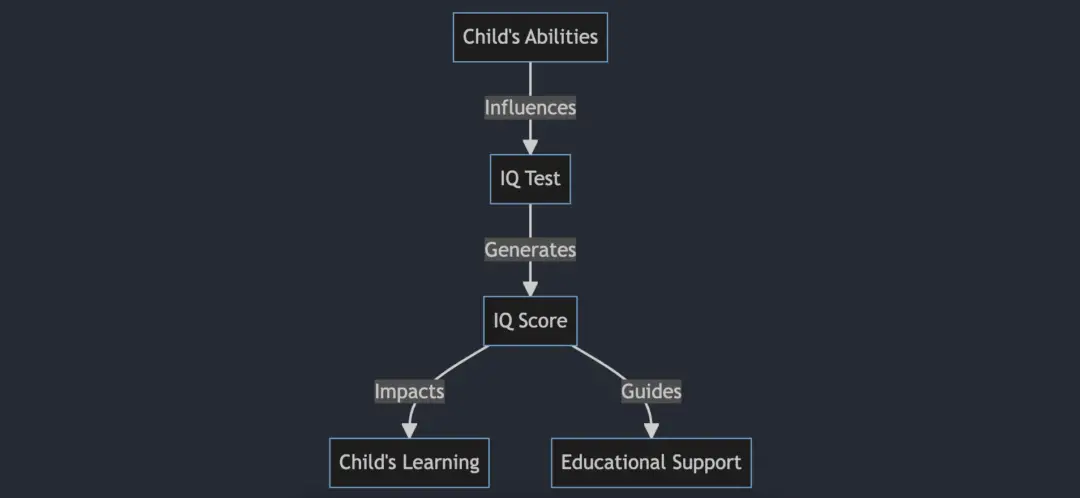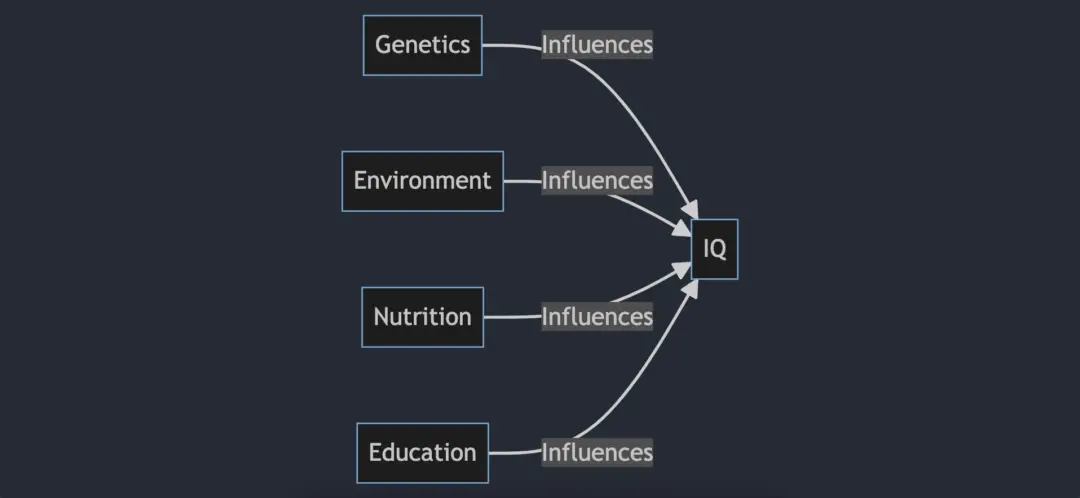The average IQ for a 10-year-old stirs curiosity, doesn’t it? Ever wondered where your child’s intellectual capabilities stand at the tender age of 10? Well, rest assured you’ve landed at the right place to find your answers. In this article, we’ll dive deep into the realm of IQs, focusing particularly on 10-year-olds, leaving no stone unturned.
In simplest terms, the average IQ for a 10-year-old is typically around 100. This score is a median value derived from standardized IQ tests, meaning that approximately half the 10-year-olds out there will score higher, and half will score lower.
Wait a minute, don’t rush off yet! Sure, you’ve got the direct answer, but wouldn’t you like to know more? What factors influence this number, and what does it mean for your child’s development? There’s a rich tapestry of information to unravel about this fascinating subject. So, stick around as we take an in-depth journey into the world of IQs and 10-year-olds.
Delving Deeper into the Significance of IQ Scores
Understanding the significance of an average IQ for a 10-year-old entails appreciating the nature and implications of the IQ score. It’s not just about numbers on a page; it’s about what those numbers reveal about a child’s cognitive development.
The Role of IQ Tests
IQ tests play a significant role in this process. While they’re not perfect, they’re a handy tool in evaluating a child’s mental agility. It’s important to note that the tests aim to measure potential, not knowledge. So, a high IQ score doesn’t necessarily mean a child is smarter, but rather, they have a greater capacity for learning.
IQ Score: A Snapshot, Not a Destiny
An IQ score is a snapshot, not a child’s destiny. It’s one among numerous measures of potential and should be considered within the broader context of a child’s environment, personality, and overall development. Keep in mind that while your 10-year-old’s IQ provides useful insights, it’s just one piece of the puzzle.
Why Does IQ Matter?
That’s the burning question, isn’t it? Why does this average IQ for a 10-year-old matter? In a nutshell, it offers insights into the child’s cognitive abilities relative to their peers. It helps educators and parents identify the child’s strengths and areas needing support, assisting in tailored learning experiences.
Remember, each child is unique. An IQ score is a tool, not a label. The development of a child goes way beyond these numerical values. They do not encompass all the abilities like creativity, emotional intelligence, and practical skills which are equally important for success in life.
Let’s look at a graphical representation for better understanding:

This diagram illustrates the relationship between a child’s abilities, IQ testing, and their learning. The arrows represent influence and directionality, providing a visual representation of how the components interconnect.
So, while your child’s IQ score gives you some valuable information, it’s essential not to let it define them or limit their potential. The next time you ponder over the average IQ of a 10-year-old, remember that it’s just one indicator of your child’s incredible, multifaceted potential.
Decoding the Factors Impacting a 10-Year-Old’s IQ
Wondering what could possibly influence the average IQ of a 10-year-old? It’s like solving a mystery, with various pieces coming together to form a comprehensive picture. Let’s explore this enigma, piece by piece, and examine some of the critical factors at play.
Genetics: A Pivotal Piece of the Puzzle
There’s no denying that our genes play a significant role in determining our IQ. After all, the apple doesn’t fall far from the tree, right? Studies suggest that genetic influence on IQ scores ranges between 50% and 80%. But before you start a family genealogy project to gauge your child’s IQ, remember, genes aren’t the whole story.
Environment: The Moulding Factor
Surprisingly enough, the environment plays a crucial role in shaping a child’s IQ. Quality of education, nutrition, social interactions, and even exposure to stress, can all impact a child’s cognitive development. It’s like watering a plant: given the right conditions, it flourishes.
Nutrition: The Building Blocks of Brain Power
What we feed our bodies also feeds our minds. Good nutrition, especially in early childhood, is vital for brain development. A well-balanced diet, rich in essential nutrients, can work wonders in boosting cognitive abilities. So, the next time your 10-year-old reaches for a snack, make it a brain-boosting one!
Education: Unlocking the Door to Cognitive Development
Education is an indispensable component in shaping a child’s IQ. It’s a process that continually hones a child’s cognitive skills, equipping them with tools to learn, think, and solve problems. A quality education can potentially swing the average IQ of a 10-year-old positively.
The Interplay of Factors
Decoding the factors that impact the average IQ of a 10-year-old child is a complex process, with multiple variables in the mix. No single factor acts in isolation. They intertwine in intricate ways, each influencing and being influenced by the others. It’s a dynamic, ongoing process that continually shapes and reshapes a child’s cognitive abilities.
Remember, while these factors play a role in shaping the average IQ, they’re not set in stone. The beauty of cognitive development is in its malleability. Changes in environment, nutrition, and education can all influence a child’s IQ, which means there’s always room for growth and improvement.

In conclusion, when considering the average IQ for a 10-year-old, remember that it’s not an inherent, unchangeable trait. It’s a dynamic attribute, susceptible to influence and change from various factors. Understanding these factors can help you, as a parent or educator, create a nurturing environment that fosters cognitive development.
Navigating the Real-World Implications of a 10-Year-Old’s Average IQ
Let’s delve into the practical side of things: the real-world implications of an average IQ for a 10-year-old. It’s one thing to comprehend the number, quite another to understand its impact on a child’s daily life. So, fasten your seat belts as we navigate through this intriguing journey.
1. Academic Performance
Without a doubt, a 10-year-old’s IQ can impact their academic performance. Children with higher IQ scores often find it easier to grasp new concepts, solve problems, and excel in tests. But hang on a second! IQ is not the be-all and end-all of academic success. It’s just one part of a larger puzzle, alongside factors such as motivation, perseverance, and emotional intelligence.
2. Social Interactions
Have you ever thought about the role of IQ in social interactions? Kids with higher IQ scores may excel in understanding complex social situations, picking up on subtle cues and responding appropriately. But here’s a curveball: too high an IQ can sometimes make it challenging for children to relate to their peers. Remember, in the world of social interactions, balance is key!
3. Career Prospects
Now, here’s a glance into the crystal ball. A 10-year-old’s IQ might even have long-term implications, such as career prospects. People with high IQs tend to gravitate towards intellectually demanding careers. But it’s crucial to remember, IQ is not the sole determinant of career success. Qualities like creativity, leadership, and emotional intelligence can be equally, if not more, important.
4. Emotional Well-Being
This one might surprise you. Yes, IQ can influence a child’s emotional well-being. Children with high IQ scores often have heightened sensitivity and may experience intense emotional reactions. By understanding this, parents and teachers can better support the emotional needs of gifted children.
| Implication | Description |
|---|---|
| Academic Performance | IQ can impact a child’s learning abilities and academic performance |
| Social Interactions | IQ might influence a child’s ability to navigate social situations |
| Career Prospects | Higher IQ could lead to intellectually demanding career preferences |
| Emotional Well-Being | High IQ often accompanies heightened emotional sensitivity |
In conclusion, when it comes to the average IQ of a 10-year-old, remember, the number is just the tip of the iceberg. The real intrigue lies beneath the surface, in the multitude of ways IQ interacts with and influences a child’s life. So the next time you ponder your 10-year-old’s IQ, remember, you’re not just looking at a number, but a key that unlocks myriad pathways in the world of cognitive development.
In a Nutshell: The IQ Journey
Exploring the average IQ of a 10-year-old unveils a world beyond numbers. It dips into genetics, environment, education, and life’s practicalities. While an IQ score provides a helpful guide, it doesn’t define your child. Instead, it offers insights into nurturing their unique abilities.
So, remember: don’t fixate on the numbers. Rather, focus on cultivating strengths, creating supportive surroundings, and inspiring your child to be their best self. The real measure of a child’s worth goes far beyond an IQ score—it lies in their unique journey of growth and development.
